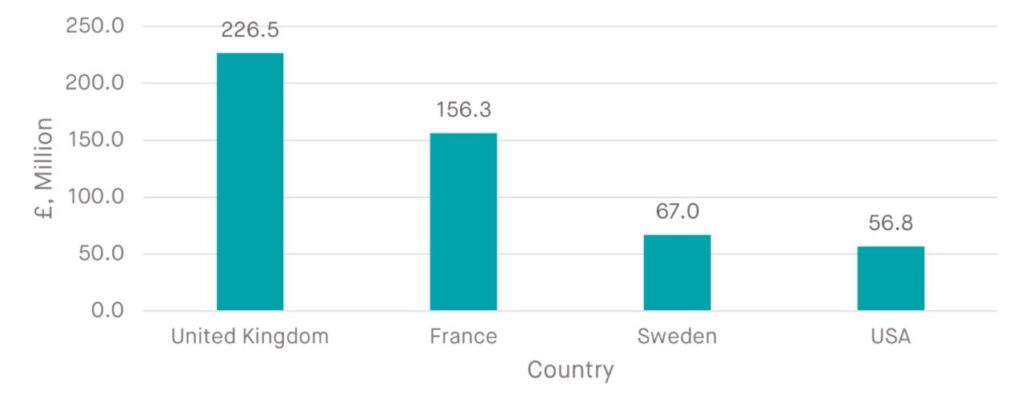A report by cross-party think tank the Social Market Foundation (SMF) shows that the high cost of industrial energy in the UK threatens its position in the AI race.
The UK faces fierce competition for investment in national data centres supporting AI and the government’s recent AI Action Plan set out how the UK will need “world-class computing and data infrastructure” to seize the opportunities that AI presents.
However, the energy demand of those data centres is extremely high and, beyond the cost of energy, establishing a grid connection comes with all the same challenges facing renewable energy generation projects.
Without those renewables projects, though, the cost of powering a data centre will remain astronomically high; the clean energy waiting to connect could reduce operational costs significantly, but the two types of technology both get caught up in planning.

SMF says that powering a hypothetical 100MW data centre in the UK would cost four times the amount of powering the equivalent in the US.
The figures come as the wholesale price of natural gas in the UK reached a two-year high, hitting around 140p/therm. This is about three times higher than pre-energy crisis levels.
The report calls for the government to implement a ‘fleet-based approach’ to nuclear power generation, rolling out reactors and keeping a steady stream of projects. However, the timescale of fully establishing such a fleet of nuclear power plants in the UK would miss clean power targets and likely leave time for the UK to fall behind in the AI ‘race’ as well.
Acknowledging this, SMF’s report sets out actions to be taken in the meantime, primarily that data centre development should be incentivised in parts of the UK where there is an excess supply of energy—the introduction of locational pricing. This is one of the potential reforms being debated as part of the Review of Electricity Market Arrangements (REMA).
Locational pricing would divide the UK into zones, each of which would have an individually set wholesale price of electricity reflecting supply and demand conditions within the zone. In theory, this would encourage development away from constrained areas like the South East of England, which is currently an area in which data centres are concentrated. Ofgem CEO, Jonathan Brearley, recently expressed support for this model.
Alongside this, SMR says reforms to planning rules would be necessary, allowing users and generators to change location on the basis of price signals.
Senior researcher at the Social Market Foundation Sam Robinson said: “Without urgent action to address skyrocketing energy costs and planning delays, the UK risks losing its position as a global leader in tech innovation and adoption. A forward-thinking strategy that makes energy affordable accelerates planning, and boosts green energy investment is essential to securing our future as an AI superpower.”






